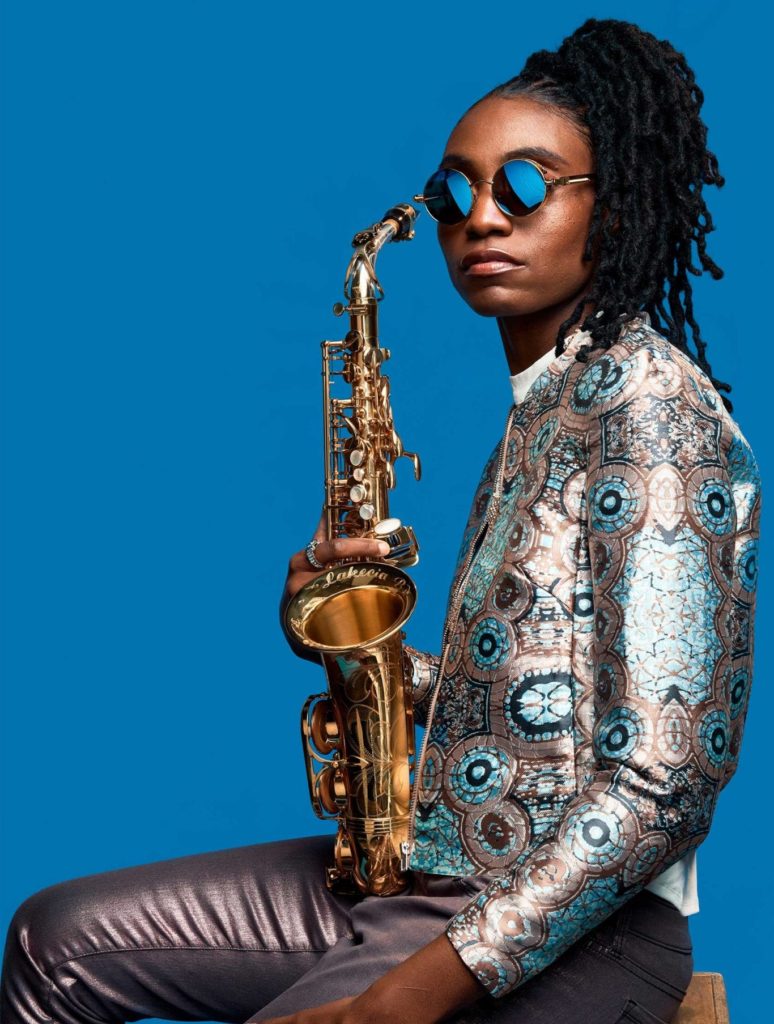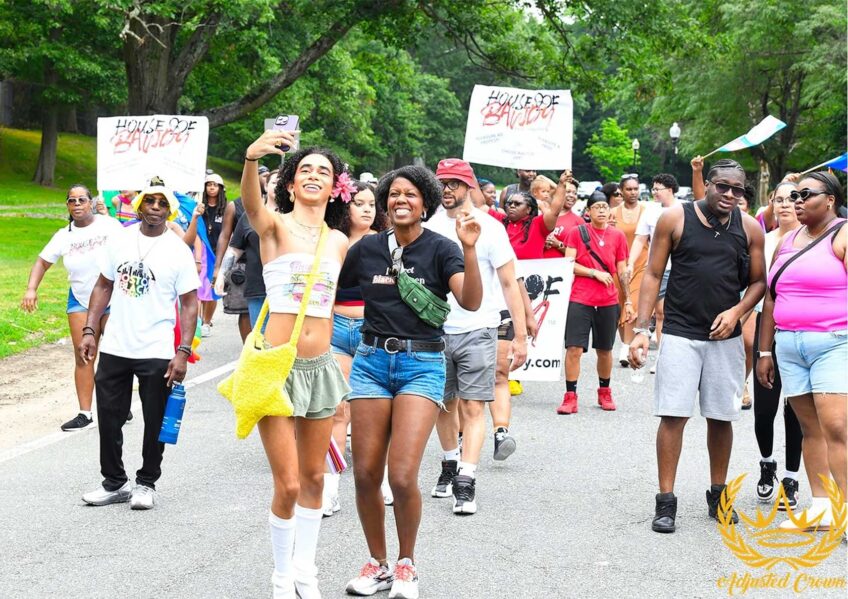
Lakecia Benjamin is a saxophonist impossible to categorize. Though best known for her work in jazz, she has performed with hip-hop musicians such as DJ Premier and Missy Elliott as well as soul stars Stevie Wonder and Alicia Keys. A Manhattanite out of Washington Heights, Benjamin’s latest CD, released on March 27 of this year, is a tribute to Alice and John Coltrane, the most remarkable married couple in the history of jazz. While Benjamin’s 2020 touring plans were knocked out by the pandemic, she is keeping busy and planning ahead. Resiliency is a hallmark of her music and serves to inspire those listening in. The Banner caught up with her from her place in New Rochelle, New York.
Your latest CD is called “Pursuance: The Coltranes.” You’ve spoken about pursuance as “a striving to get to that place of spirituality epitomized by the work of the Coltranes — trying to get to heaven every time I play.” Can you say a little bit about how that striving takes place in your work?
I think that there are a couple of ways to look at this. Both Coltranes practiced 12 to 15 hours a day. So taking that as a start: Practice as much as you need so that you can play what’s in your head. Then, too, find yourself: You can only play who you are. If you’re only technically proficient, you’re leaving out the exploration and the feeling of who you are as a person. You can’t play anything you haven’t lived.
Bassist Reggie Workman helped produce the CD. At age 83, having worked with the Coltranes, he’s more or less heard everything. How lucky to have him as a mentor. Did he try to steer you in any directions?
He did not. My major goal in recruiting him for the record was because he knew the Coltranes as individuals. He would have dinner with John Coltrane, he knew him as a person. So he could ask him questions like, “Why did you write ‘A Love Supreme?’” I think Reggie enjoyed the concept of what I was doing, too — he appreciated that Alice’s music was included. My goal was to honor elders on this project.
You grew up in Washington Heights and speak of the music of the Dominican Republic as an early influence, which adds to the unpredictability, the uncharacterized nature of your music. Then as a teen, turning to Duke Ellington. What are you listening to these days for inspiration?
These days I’m not listening to music for inspiration, what with being locked down due to the pandemic. I am listening to music to lift myself up. Like, “I Don’t Want Nobody,” by Eddie Harris. And James Blake and Sam Rivers. Then, too, “The Black Saint and the Sinner Lady,” an album by Charles Mingus.
There are so many references to you in media as “streetwise.” What’s that even mean?
Streetwise. Yes, I see that I’ve been described that way. I have no idea why people say that!
What has been your experience as a woman in jazz? I’ve spoken to Terri Lyne Carrington and Dee Dee Bridgewater about that. Any thoughts?
Whatever they told you, I feel the same way! One thing I would say to young women starting out in a career in music: You have got to get a mentor who’s a woman. Now. Right away. It’s crucial. There are women who miss out on going to gigs because they happen between midnight and 4 a.m. and they don’t want to go alone. You can become isolated. A mentor can go with you.
A lot of articles appeared this summer on social activism and jazz. What are your observations both in terms of your goals and looking at the work of other musicians?
You can’t separate music from the culture. The music is the culture. Yes, there’s a lot of talk about social activism and jazz, but the music is a reflection of the culture that the musician is experiencing.
I saw that you participated in a virtual seminar at UMass Amherst on July 24 with bassist Avery Sharpe and pianist Christian Sands. Any future Boston area plans?
It’s hard to say, with all that’s going on, but usually I have something happening at Berklee or with Terri Lyne Carrington or at Scullers Jazz Club. Typically, too, I perform the last two weeks of August on the Vineyard. These weren’t options this year. It wasn’t safe. And I enjoy Cape Cod, it’s so pleasant.
What’s next for you in 2021?
I got some positive news from a friend in China who sent me photos recently of performing in a jam-packed club there. That’s a hopeful sign. I’m optimistic: My fall tour of 2020 was moved to Spring 2021. I’m hoping it will be possible to attend summer festivals in Spain and Germany. There will be virtual shows in North Carolina, Berlin and New York City. The only trouble is that all of my 2020 work is moved to 2021, and by then I’ll be working on new music.






